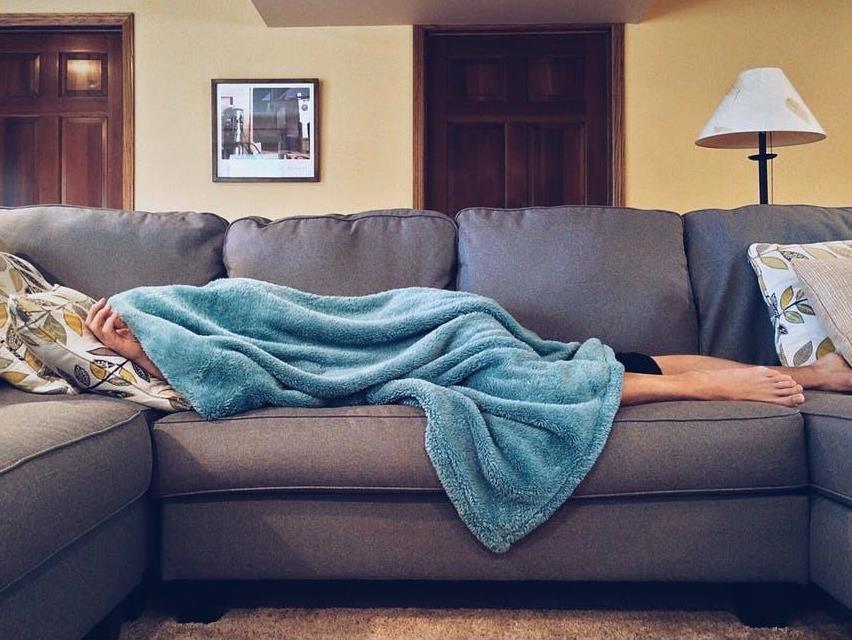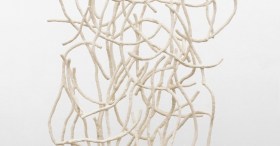Image: Pexels.com
Despite entitlement to paid sick leave for salaried workers in the arts, there appears to be an industry-wide guilt about taking time off work.
Instead of taking care of ourselves and fellow colleagues, pushing through, even when unwell, is worn as a badge of honour – contributing to an increase in burnout, mental health problems, substance abuse, and higher than average suicide rates.
Read more: Why we are burning out in the arts
Arts workers by default are creative, ambitious, and resilient – enabling great work to be delivered, often with few resources – but such qualities may also illuminate why a sense of guilt around taking leave is so prevalent in the creative industries.
As the Project Manager of the Arts Wellbeing Collective at Arts Centre Melbourne, Tracy Margieson has observed that the arts sector’s general reluctance to take leave is entrenched in the culture; it’s not simply self-inflicted.
‘There are fears around losing work, being judged or replaced, and people “powering through” sickness may stem from some of these fears. That’s not to say this attitude is in all arts workplace or is entirely self-inflicted – sometimes a lack of resources can mean if we don’t do something, there’s literally no one else to do it; immovable deadlines; a reliance on one person such as an actor in a one-person show; and a pervasive mythology that we should “suffer for our art”,’ she said.
When so much of the work accomplished in the sector is dependent on creativity, which is linked to our emotional and mental state, this idea of ‘suffering for our art’ may negatively impact work environments, projects, and the art itself.
‘If our minds and hearts are twisted up in poor health, how can we possibly expect ourselves to create our best work?’ said Director of Creative+Business, Monica Davidson.
‘We wouldn’t expect a marathon runner to win medals if she had pneumonia, and we shouldn’t expect creatives to conjure beautiful work if their inner health is suffering. From a bigger picture point of view, I think that once we start taking creative industries more seriously, maybe we’ll be more mindful of the people who create this important work.’
The root of overwork and guilt
Director of the Australian Centre for Contemporary Art (ACCA), Max Delany knows first hand how people working in the arts apply great dedication and professionalism – and how often that comes with a feeling of not wanting to let other people down.
‘As the arts sector is largely under-resourced, people regularly work beyond the call of duty, with modest remuneration. The arts are an especially collaborative endeavour, and full of generosity, so “pushing through” is often linked to colleagues not wanting to let others or the organisation down,’ he said.
While this culture of ‘yes’ is an admirable ethos that leads to strong bonds and astonishing work, Delany continued, it also has the potential to be problematic.
‘Doing this over a period of time can lead to stress and burnout so it becomes important to pace yourself, and put in place structures to support others to pace themselves as well.’
How to flip the ‘badge of honour’ mentality
Working in any area of the arts, it’s easy to think you are too busy or the too work important to take sick leave or time off, despite potential risk to your own physical and mental health.
Monica Davidson has witnessed the ‘push through’ attitude in the arts, and is guilty of it herself.
The freelance nature of much work in the arts may contribute to this ‘push through’ mentality, and while on the positive side arts workers are often the most resilient, there is a negative, she explained.
‘People can make themselves sicker by pushing through, which can then create an overwhelmingly unhealthy and unhappy workplace for everyone in the long run,’ she said.
Our first instinct may be to ask ourselves what will the workplace or project do without me, but perhaps the better question is, what will happen to those around me and the work itself if I don’t take time off to recover?
For those with access to paid sick leave, it needs to be viewed as an obligation to take time off when unwell to ensure colleagues are not at risk – especially those who may be contract or freelance and not have the same entitlements.
How do we flip this narrative? Start by talking so the badge of honour eventually becomes awarded for taking time off when needed, not for overwork.
‘Now that I lead a team in my business though I’m trying much harder to say things like “I don’t feel well so I’m taking the day off tomorrow”. Sounds so simple, but especially for creatives this is a very big deal,’ said Davidson.
Why do we feel more guilt about mental health days?
When it comes to taking time off, physical illness such as the flu or an injury are often viewed as more ‘acceptable’ than taking using leave for mental health issues such as anxiety or depression.
But in the arts and elsewhere, mental health days should be taken as seriously as physical illness.
‘The dichotomy of mental and physical health is a false one,’ said Delany. ‘It is important in any situation of ill health to take the appropriate time to rest and recover.’
While the arts may be getting better at talking about mental health, the stigma remains. ‘As a society in general, we need to be more open, empathetic, and to change the way we talk about these very real issues, which will then feed into how we recognise and deal with them in the workplace,’ he added.
‘Artists often lead the way when it comes to expressing these challenges, and in promoting ways to embrace vulnerability.’
We can’t ignore chronic illness
While for some, physical or mental illness may only be experienced temporarily, it’s important to recognise the experiences of those with prolonged or chronic illness whereby ‘pushing through’ becomes a severe risk to personal health.
‘Living with a chronic condition, every day is a “sick day” for me, so that guilt is magnified,’ said writer and performer Kaitlyn Plyley.
It’s been crucial to learn how to rest, she explained. ‘I don’t have the ability to “push through” illness and survive, so I’ve had to unlearn a lot of harmful conditioning that was causing me to make myself sicker. It’s the hardest challenge of my life, though; I still haven’t quieted down that ticking in my head that said I need to work more, more, more.’
Read: Destigmatising invisible illnesses, creativity and work
There needs to be far more awareness within the industry about how going to work unwell impacts other people – especially those with chronic conditions.
‘When I catch a common virus that might manifest in a healthy person as a few days of sneezing, it literally knocks me off my feet for weeks,’ she said.
‘You don’t always know when you’re contagious, because a lot of the time people are asymptomatic during that period, so contagions can’t be completely avoided. But don’t go around other people when you have the flu if you can avoid it.’
For Plyley, navigating work expectations, chronic illness and ‘the guilts’ of taking time off requires organisation and strict boundaries, such as breaking goals into monthly and weekly chunks to avoid feeling overwhelmed.
‘I try to be honest with myself about how much work I can handle and set realistic expectations of myself. I freelance so it’s easy to take time off work but it’s also easy to have no money really quickly.
‘I have big handwritten goals and reminders pinned up on my wall, so that when the monkey on my back starts shrieking “YOU’RE NOT DOING ENOUGH” I can look at my wall and remind myself that I’m doing exactly the right amount,’ she added.
The guilt of taking time off from your own creative projects
There’s also a lot of pressure outside of working hours to avoid taking time off or downtime from creative pursuits.
Balancing a full-time job alongside volunteer positions for arts organisation Right Now, freelance writing and criticism, and maintaining her weekly food blog Whatever Floats Your Bloat, for Sonia Nair, spare time is scarce, adding to a feeling of guilt when taking time off.
‘I work best when there is structure in my life, so I appreciate the strict rigour that having a day job gives me – not to mention the relief of being financially stable – but there’s no doubt that it detracts from my creative practice. Often, I’m simply too tired after a long day of work to do anything.
‘[But] I find it hard to justify taking time off from my creative side projects because I don’t spend enough time on them as is due to my day job,’ explains Nair.
Taking downtime is difficult for creatives, especially when juggling work, parenting or other commitments – the time we have for our own ideas and projects diminishes.
While navigating time off, guilt, and creativity is individual, Nair shares some advice for managing the swing from wanting to work on creative projects but not wanting to burn out: ‘Being kind to yourself is key, and giving yourself the space and time to regenerate after particularly busy periods is crucial. But the short answer is: working a day job and doing creative work on the side is a constant juggling act. Sometimes I feel like I’ve nailed it; often, I don’t.’
Another approach to banishing the guilt of taking time off is to cultivate other aspects of our life and work, suggested Margieson.
‘There are moments where you feel like your whole world depends on this moment – opening night, an audition, hitting “submit” on a major grant application, your first solo exhibition. If these moments become experiences in amongst many, and one part of your identity instead of the whole, the sense that it would be the absolute end of the world if you were sick and missed it will reduce, and hopefully you’ll feel more comfortable prioritising your health. We need to aim for balanced perceptions about work and life that will actually enhance our creative output.’
How to change attitudes from the top
There’s such a strong stigma surrounding taking mental health days both in and outside the arts sector that one interview subject requested to remain anonymous.
Their insights demonstrate just how crucial it is that support for taking time off comes from the top. ‘Some workplaces are better at this than others, but I think a good starting point would involve employees feeling like they’re able to call up their bosses and tell them they’re taking a mental health day, instead of making up a fictitious physical ailment that they need to lie about in order to justify their day off.’
Davidson agreeed that this stigma needs to be addressed from the top down. ‘I do believe that mental health, and the ways to foster better mental health, need to be taken seriously. This is particularly true in the arts, where wellbeing and mental health are such enormous issues. The guilt will probably always be there, especially as an overhang from the freelance or casual mindset of no work equals no pay, but this needs to be corrected from the top down,’ she said.
At Creative+Business, the team has instituted at least six mental health days for every full-time worker.
‘I have led the charge by putting my first three in our shared calendar. If my team can see that I am taking it seriously and applying the new rules to myself, hopefully this will assuage their guilt about doing the same,’ said Davidson.
As an arts leader, Delany said it’s important to create a culture of mutual support, respect and empathy in order to foster an environment where colleagues feel comfortable and supported to raise challenges and issues.
Ideally, he’d like to see greater resources made available for the arts sector, to support greater sustainability for organisations and personal wellbeing.
‘In the interim we can do small things to make for more supported and sustainable workplaces. For example, at ACCA the core team are given the days between Christmas and New Year as additional holidays in recognition of the contribution each person has made throughout the year,’ he said.
A lot can be done to improve conviviality on a small, low cost scale – cake for birthdays, pizza after an opening, and sitting together at lunch.
‘We hope that these regular moments make for a close working environment where staff members are supported and communication of challenges is not stigmatized,’ he said.
Leading by example is crucial, said Tracy Margieson. ‘If you send emails on your day off or in the middle of the night and come in when you’re on your death bed and really should be at home, your team will follow your lead.
‘One of my favourite phrases is “leave loudly”. Rather than scurrying out for a quick lunch or dashing out right on 5pm with a series of excuses, tell your team when you’re leaving bump-in to take your lunch break and get some Vitamin D, and ask if anyone would like to join you. If you are staying back past the end of your shift or end of work day, state why and make it the exception not the rule.’
We need to get better at thinking of ourselves as part of an ecosystem, rather than individualistic self-contained units, explained Plyley. ‘Taking a personal day as soon as you start feeling run-down might put less pressure on your immune system than waiting until you’re dead on your feet; then in turn your immune system is in a better position to keep out the really nasty contagions,’ she said.
‘I know it’s not that easy – if it was easy to take care of ourselves and still afford to live in this society, we’d all be doing it already, right? But it would be cool if everyone started making little changes to take care of themselves (and therefore others),’ she concluded.





